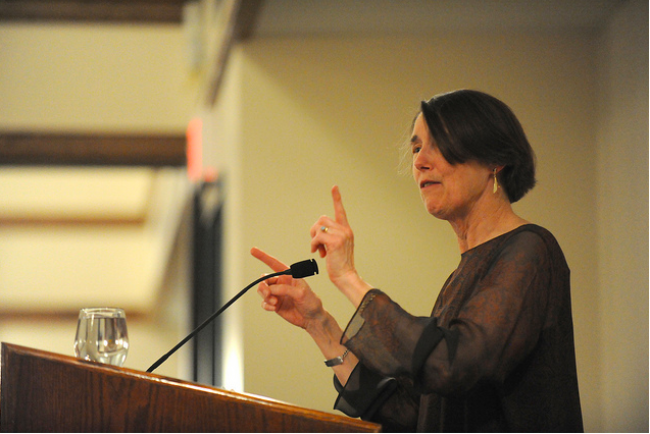 By Serena Elavia ’14 for The Trinity Tripod
By Serena Elavia ’14 for The Trinity Tripod
“Not every university can boast about having a Pulitzer Prize winning author, but Trinity can. Over winter vacation, the Charles A. Dana Professor of History Joan Hedrick was featured in a three part PBS special called “The Abolitionists.” The special was a docudrama, meaning that it was part documentary and part historical reenactment. Given that Hedrick wrote a Pulitzer Prize winning biography of Stowe, she is a go to source of information on Stowe and was chosen for the PBS special and Hedrick happily accepted the offer. “Stowe was so influential in the debate on slavery and to be represented in a series on abolition was important for me to do,” says Hedrick on why she accepted the offer to be interviewed in the series. Hedrick’s interviews were featured in the second episode, which focused on Stowe, of the three part series. Hedrick describes the process of filming as “very good.” The director, producer and writer of the series Rob Rapley was an “excellent interviewer” according to Hedrick. She says that it was helpful to work with someone very skilled and low key and that the overall interviewing process went well. Before the special aired on Tuesday Jan. 8, the Harriet Beecher Stowe Center in Hartford, Conn. held a panel discussion featuring Hedrick and other professors at Connecticut universities. Many do not know that Stowe spent her retirement in Hartford. The Center has converted Stowe’s home into a museum that offers educational programs and has a library that includes many letters that Stowe wrote to her husband Calvin Ellis Stowe.”
“Wesleyan Professor Lois Brown and Rapley participated in the panel discussion. Brown and Hedrick will present a Common Hour lecture on March 7 at Trinity on women’s abolition. The panel discussion started with the host asking a question of each panelist and then opened questions to the audience that consisted of approximately 300 people. Hedrick’s fascination with Stowe is certainly not a random one. In the 20th century, Stowe’s reputation and status was lower than it was in the 19th century and Hedrick wondered what caused that difference. According to Hedrick, 19th century female writers were underwritten and she wanted to see and appreciate Stowe in her own time. Her decision to write a biography on Stowe was to place Stowe in a literary context that presented her more accurately than in the 20th century. Modernists of the 20th century viewed Stowe’s work as not good art, instead of viewing her writing as a tool for social and political purposes; Hedrick uses her biography to show how women, and in particular Stowe, used writing as a channel to express themselves, as they did not have the right to vote. Hedrick notes that writing a biography is not for the faint-hearted, as it took her 10 years to complete her biography.”
Read entire article HERE.